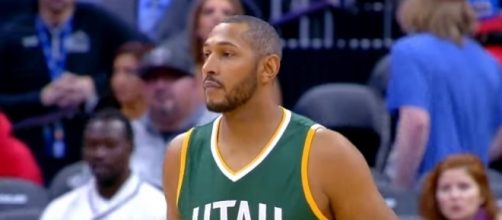Many NBA aficionados were surprised when Boris Diaw opted to play in France. The veteran forward, who spent the offseason on the free agency market, recently signed with Paris-Levallois. Many thought this signaled the end of his NBA career, though his deal with the French squad reportedly has outs for NBA and European teams.
In a video from Bros. Stories, Diaw shared why he left the NBA and headed back home to his motherland. According to the 33-year-old, once the Utah Jazz's previous campaign ended, he waited for their decision if they are keeping him.
Unfortunately, the Jazz decided to let him go. Following this, he had several options but chose to be with Paris-Levallois. One of the reasons why he signed with the team is because of his great relationship with its head coach Fred Fauthoux.
Aside from working with Fauthoux, Diaw wants to contribute to what Paris-Levallois is doing which is honing young talent. He aims to be a mentor while still competing at a high-level. Diaw also sees his stint in Paris as an opportunity for him to stay in shape to be ready when an NBA team calls.
A successful journeyman
Diaw suited up for five organizations in his illustrious NBA career. His NBA journey began with the Atlanta Hawks, where he was a key player from the second unit.
He got traded to the Phoenix Suns in August 2005 and with them, he thrived. In his first year with the Suns, they made it to the Western Conference Finals, and he captured the Most Improved Player award (2006).
The Suns sent Diaw to the then-Charlotte Bobcats in December 2008. He represented Charlotte for nearly four seasons before the franchise waived him in March 2012.
After this, he signed with the San Antonio Spurs and was with them for almost five seasons. During his stop in San Antonio, he won his first and only NBA championship (2014). The Spurs shipped him to Utah in last year's offseason. As a veteran, he helped the Jazz end a four-year playoff drought in the 2016-17 season.
Loaded front line
Perhaps the reason why the Jazz parted ways with Diaw is that they already have plenty of frontcourt options. On the depth chart provided by ESPN, there are three players each at power forward and center, positions where Diaw is playing. If he stayed in Utah, he may have gotten fewer minutes and would likely spend more time on the bench than on the court. Hopefully, he finds his way back to the NBA and joins a team that will grant him an important role.


